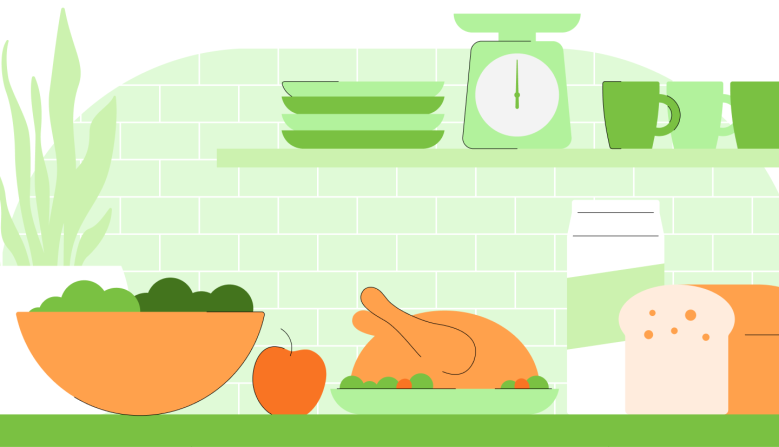11 Healthy Habits That Can Actually Help You Sleep Better



Some people simply sleep better. They just snuggle into bed and are out cold in a few minutes—or even a few seconds. While that’s great for them, many people are constantly on the hunt for how to sleep better, because they struggle to fall asleep, stay asleep or both.
A full night’s sleep is essential to our health and well-being. And while you might assume that your current sleep habits are firmly ingrained, as with any habit, there are certainly ways to change and improve them (with a little persistence, of course). So, if you regularly have trouble getting a full night of zzz’s—whether your issue is getting to sleep, staying asleep or some frustrating combination—read on for how to sleep better using these science-backed and expert-approved strategies.
1. Stick to a consistent sleep-wake schedule.
We all have busy lives, and it’s often tough to get to bed at the same time every day. That said, keeping a consistent bedtime and wake-up schedule is the No. 1 recommendation from numerous sleep experts, including Michael J. Breus, Ph.D., a Los Angeles–area sleep specialist and founder of The Sleep Doctor. “It’s critical to keeping your circadian rhythm in sync, and should even be practiced on the weekends,” Breus explains. This self-regulation is a major solution for how to sleep better.
If your sleep schedule is currently all over the place, the best way to start working toward a consistent and healthy pattern is to wake up at the same time every single day (yes, Saturday and Sunday, too!). Your body will gradually start to adjust itself and follow suit to get sleepy at the same time every night.
2. Get enough daily sunlight exposure.
In his book Why We Sleep: Unlocking the Power of Sleep and Dreams, professor and director of UC Berkeley’s Sleep and Neuroimaging Lab, Matthew Walker, Ph.D., explains that “daylight is key to regulating daily sleep patterns.” He urges everyone to go outside for at least 30 minutes for their daily fix of natural light. “Sleep experts recommend that, if you have problems falling asleep, you should get an hour of exposure to morning sunlight and turn down the lights before bedtime,” Walker writes.
3. Unplug before bed.
If you want to ensure a deeper sleep and fewer racing thoughts after lights-out, however, you need to power off phones, TVs, computers and tablets at least one hour before bedtime. “The blue light stimulates the brain and keeps you alert, so I ask people to try to shut their screens down early,” Breus says. (Even devices with nighttime settings emit blue light, so you should shut those down early too, he says.) If you must use a device at night, Breus recommends using blue-blocker glasses to filter out some of your screen’s wakefulness-inducing light waves.
Beyond the blue light dilemma, which is still up for debate by many experts, digital gadgets are simply too stimulating for anyone trying to get to sleep. How can you possibly sleep soundly after scrolling through stressful work emails, seeing what everyone’s up to without you on social media, or reeling from a particularly thought-provoking article? If you’re having trouble disconnecting, place your phone and laptop far away from the bed every night (preferably in another room).
4. Exercise daily, but not too close to bedtime.
You know that working out is good for your overall health, but it can also improve your sleep quality, particularly if you work out in the morning, or at least earlier in the day. Evening workouts are definitely OK too, but should occur two to four hours before bedtime to give your body time to cool down before you go to sleep, says Breus. He recommends 20 to 30 minutes of cardio exercise a day, to promote better sleep that night.
5. Resist napping after 3 p.m.
Sleep cycles are truly cycles. If you get a bad night’s sleep, squeezing in a nap to take the edge off can certainly help. Unfortunately though, indulging in a nap too late in the afternoon can make it harder to fall asleep at night, and can give you insomnia. If you can’t get a nap in before 3 p.m., your best bet is to power through and go to bed a little earlier that night.
6. Quit looking at the clock.
If you often wake up in the middle of the night, you know a digital clock can taunt you. When you see that it’s 4:30 a.m., you immediately start doing the mental math, stressing about how many hours there are left to get some sleep. To sleep better, experts recommend turning the clock’s face away from view to curb the anxiety that keeps you awake.
7. Don’t consume alcohol or caffeine before bed.
You knew this one was coming. Sure, a glass or two of wine might give you that soothing, sleepy buzz, but once the effect wears off, you may find yourself awake with sweats, a headache or the need to urinate frequently. Alcohol is tricky: It helps prompt the mechanism that makes us sleepy at first, but this typically doesn’t last and can disrupt REM sleep and your ability to stay asleep through the night. “Try to stop drinking three hours before bed,” Breus says. “That way it’s out of your system and won’t affect sleep quality.”
Caffeine, on the other hand, found in coffee, chocolate and certain teas and sodas, is a stimulant that can stay in your system for up to eight hours. So even a 4 p.m. latte that seems harmless could contribute to nighttime tossing and turning.
8. Turn on some white or pink noise.
Light sleepers will wake up at the drop of a hat—or the sound of a spouse rolling over. Parents know the experience all too well, since most have their ears perked up throughout the night, just in case. Try any kind of soothing background noise, like a fan, to muffle the other sounds. You can even purchase a white noise machine, which experts use to sleep better.
9. Keep a cool bedroom.
Did you know the body has an ideal temperature for sleep? That might be why you’re more restless and uncomfortable during the summer or when the heat’s blasting in February. You’ll sleep better if your bedroom is on the cool side (the National Sleep Foundation recommends 67 degrees, to get specific). If you run hot, crack a window or get yourself a bedroom fan. It might even be worth investing in some cooling sheets, PJs or even a temperature-controlled mattress.
10. Take a warm bath or shower.
Speaking of the ideal sleeping temperature, studies suggest that taking a warm bath or shower at night, one or two hours before going to bed, can help get you there. If you time it right, a warm soak will naturally heat up your body while the subsequent cooling-down process will make your body’s pre-sleep dip in temperature even more pronounced. Plus, a nice bath or shower is a great way to relax and decompress at the end of a long day.
11. Don’t stay in bed if you can’t sleep.
This is a complicated rule rooted in psychology. If you’ve been in bed for more than, say, 30 minutes and can’t drift off to sleep, don’t lie there and stew. Counterintuitively, you’re supposed to get up and do something relaxing, like reading, journaling, light stretching or meditating (no phones or TV please!). Remaining in bed while anxious about your inability to sleep will only create negative associations between bed and sleep, which can even lead to the vicious cycle of insomnia. Your bed should be a sanctuary for sleep, not a trap for tossing and turning.
© Meredith Operations Corporation. All rights reserved. Used with permission.

















